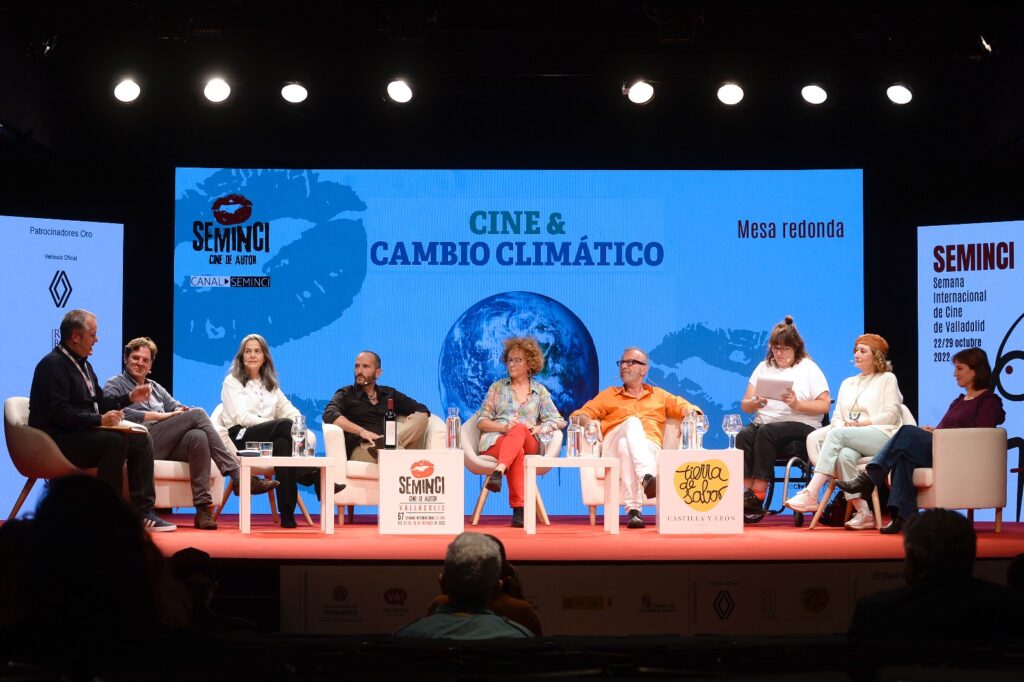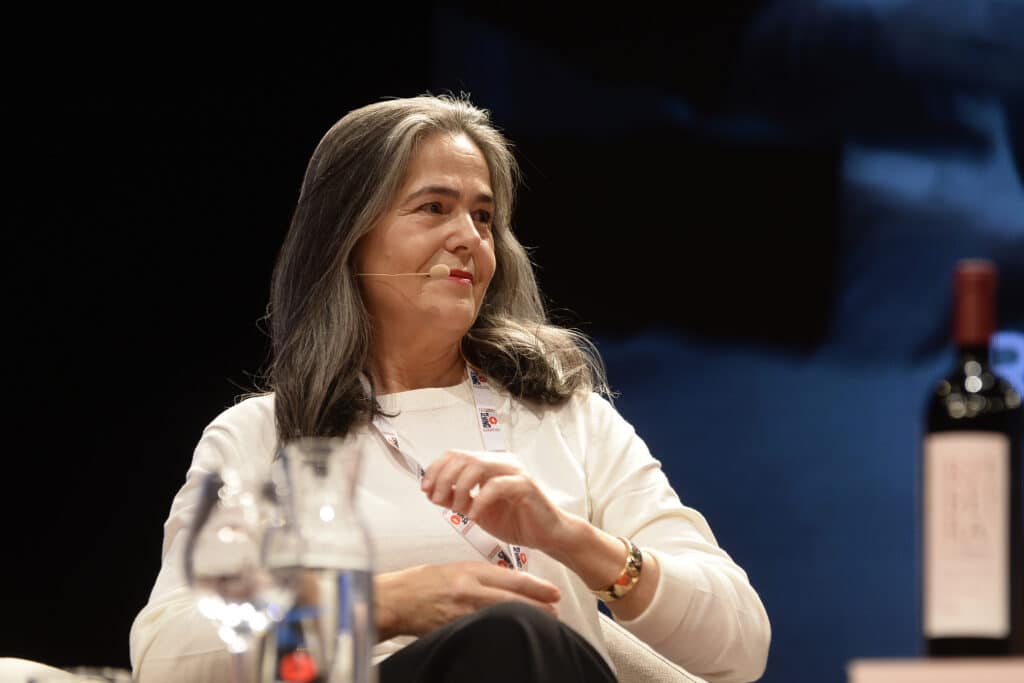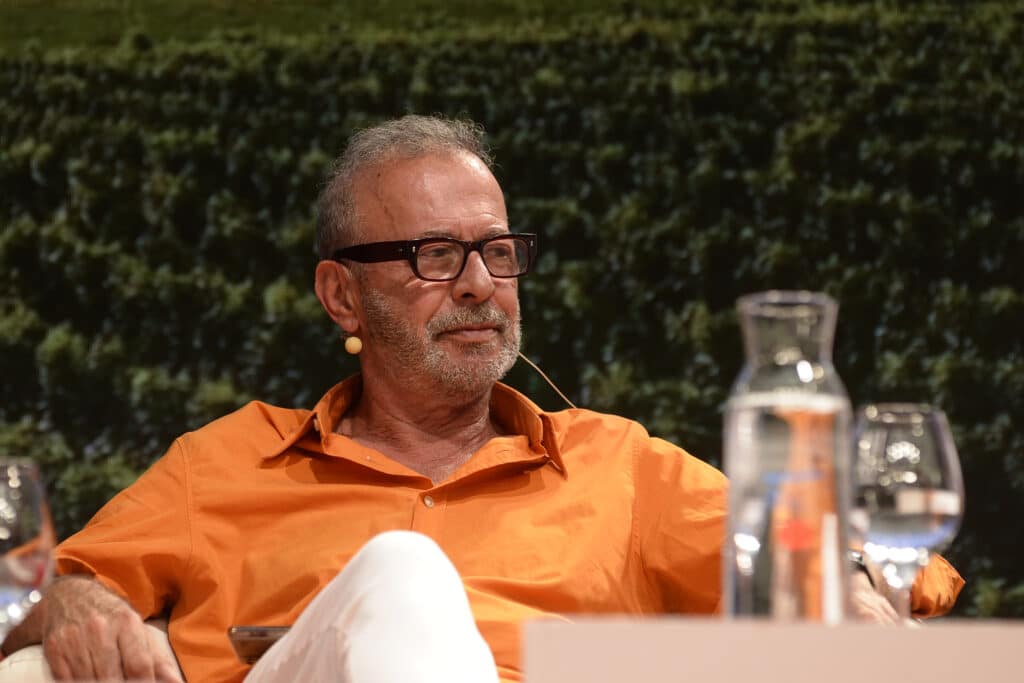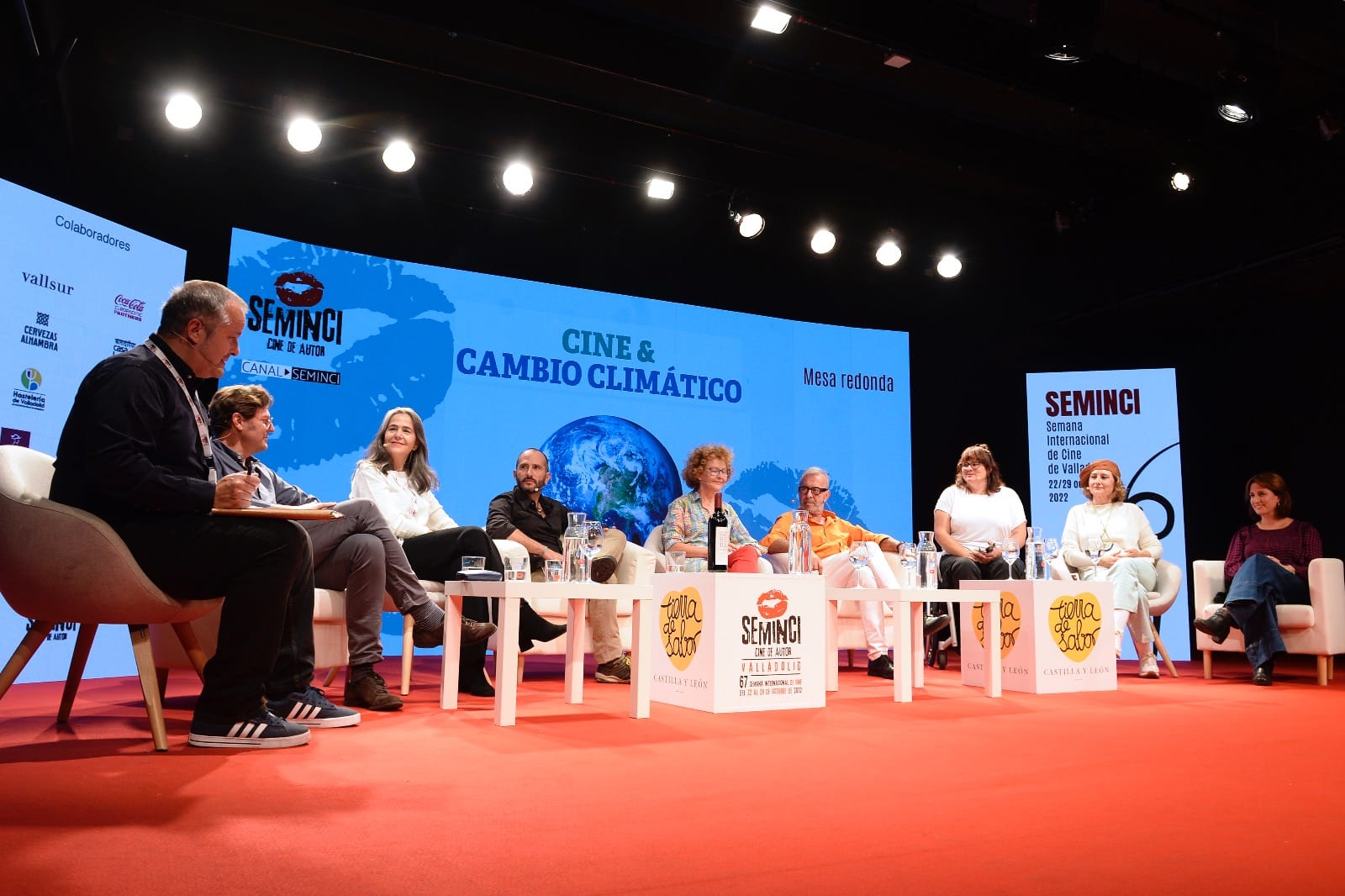Producers are trying to implement measures to minimise pollution on film shoots
The Valladolid International Film Week was the first festival in Spain to organise activities in defence of the environment and, in general, climate change, as Javier Angulo, the festival’s director, pointed out when presenting a new edition of the debates on Cinema and Climate Change, this year under the title Ecological scripts and the sustainability of film shoots. “We have finally brought it back after the pandemic,” he said.
A select range of people involved in environmental issues in their respective areas participated in the session, moderated by Miguel Angel Pérez Quintero, environmental festival programmer and member of the Espiga Verde Jury of the Seminci: Álvaro Longoria, producer of Morena Films; Mónica Fernández-Aceytuno, journalist and nature conservation expert and member of the Espiga Verde Jury; Nacho García, Mobilisation Coordinator for Greenpeace Spain; Alicia Luna, scriptwriter; Antonio Pérez, producer of Maestranza Films; Elvira Cámara, member of Ecologistas en Acción; Ana Amigo, producer, and María Sánchez, Councillor for the Environment and Sustainability of Valladolid City Council.

Those present debated such fundamental issues as the commitment of scripts to the environment and good practices in filming, and Álvaro Longoria concluded with an explanation of the Forest Project, with which the film industry tries to compensate for the carbon footprint that each film generates when it is shot.
Film as a reflection of reality
On the first big issue, how filmmakers deal with environmental issues, Alicia Luna pointed out some of the key issues: “Cinema is that industrial art that represents us all, after all, filmmakers tell what they see or what they imagine it will be. We have to think about what kind of society we are reflecting in our cinema”.
Mónica Fernández-Aceytuno focused on the themes that the films deal with and said that at the moment the plots deal with subjects that are overlooked by journalism, such as the exploitation of natural spaces by energy industries. Luna agreed, and said she was convinced that the stories that screenwriters come up with tend to be centred on cities because that is where they themselves live.
Scripts to imagine other possible worlds

The commitment of cinema to the environment depends, to a large extent, on the stories it tells, and scripts have a lot to say about this. This was the second major block of debate. For Elvira Cámara, “there is an important function, which is to help us imagine other possible worlds, another future; how the collective imaginary is constructed is largely the responsibility of audiovisual consumption. Nowadays, when we talk about the future, we find ourselves talking more about dystopias than utopias, and this is blocking in some way our capacity to imagine other types of future”.
Nacho García has also addressed the same issue: “What Elvira raises is tremendous: that no one can imagine the end of capitalism or the end of patriarchy, for example. This happens because all the futures we imagine are based on our present. I think that the best contribution of scriptwriters would be to help us imagine futures that are neither dystopian nor naïve utopian, unrealisable, but ‘ecotopian’ and possible”.
Álvaro Longoria was vindictive of his sector’s capacity for social influence, especially at this historic moment: “Cinema has great power, because nowadays the world is told through audiovisuals. And that is often forgotten. Some things have been changed, such as the treatment of violence against women or smoking in films, but not so much in other things. We have a brutal power, which implies a great responsibility.
Other possible filming
Film is a highly polluting industry. With this as the third major topic of analysis, Ana Amigo explained that the very act of creating a film generates a large amount of non-recyclable materials. “There is a before and after pandemic here,” she said. “We have taken a step backwards with respect to what had begun to advance.
Antonio Pérez has argued that certain guidelines that were once reflected in a decalogue of good practices in filming should be mandatory guidelines: the disappearance of plastics from the supplies, the use of LED light bulbs for lighting, or to stop passing the daily work orders in printed format. “There are more difficult things, such as using electric vehicles, because sometimes there are no special vehicles used in the cinema, but the rest is easy to implement”.

The Academy, for its part, is also beginning to take steps in this direction. As Ana Amigo recalled, the Rayo Verde award, which favours the values of sustainability, was presented for the first time this year and went to José María Morales.
The political side is also fighting in favour, as María Sánchez argued: “It would be important to banish the idea that catastrophes fall from the sky and are inevitable. Now we not only have to have the political will, but we also have to comply with legislation to prevent these disasters. But in the environmental field, sometimes the problem is to consider that some policies go against development.
Bosque del Cine’ project
It is precisely with political support, in this case from the Government of Cantabria, that it has been possible to set up the Forest Project. Álvaro Longoria explained that the idea of the sector, or at least part of it, is not only to measure the carbon footprint, which they already do, but to find a way to neutralise it. “We found that there was nothing nearby, so we started to think about it and came up with the idea of making a film forest,” he said.
And that’s where the data starts: “Films produce, on average, 45 tonnes of CO2, equivalent to between 150 and 200 trees maintained for 40 years. The Government of Cantabria has given us 40 hectares of an old eucalyptus forest that is being replaced by a native forest. We already have 12 film productions that have signed up for the project, and we have planted 1500 trees. We need 160,000 trees to fill the 40 hectares, but we have already started to move from words to deeds”.



























![Logo Foro Cultural de Austria Madrid[1]](https://www.seminci.com/wp-content/uploads/2024/09/Logo-Foro-Cultural-de-Austria-Madrid1-300x76.jpg)








